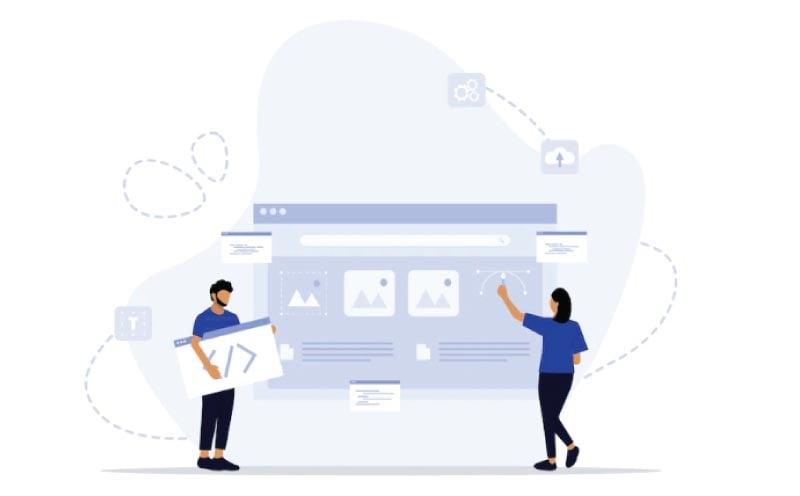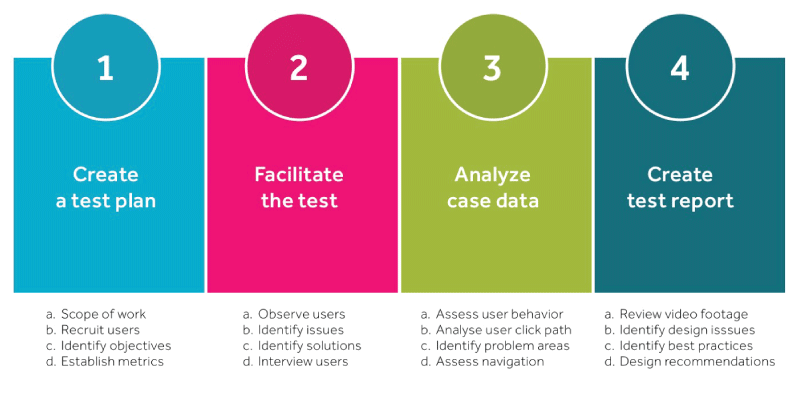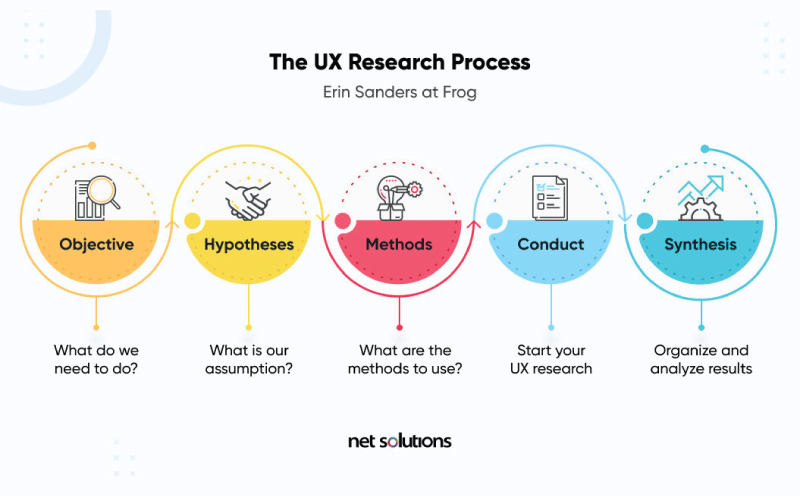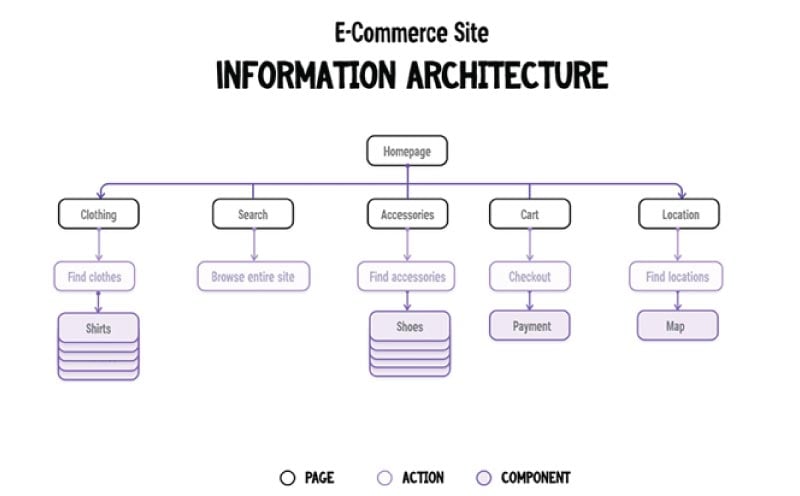7 Entry-Level UX Designer Jobs To Break Into the Industry

In this article
Oftentimes, the difference between a smooth digital experience and an infuriating one is a matter of user experience (UX) design. UX designers build the layouts of product interfaces, mobile apps, and websites, ensuring that you can easily find what you’re looking for.
UX design is now an integral part of product development, and the demand for UX designers is growing proportionately. LinkedIn reports that the number of UX designers being hired quintupled between 2019 and 2020. And with such high demand, salaries are rising too. Glassdoor ranks UX designer 24th in their list of top paying jobs in the US, with a median salary of $97,000.
As an emerging field, UX design welcomes career transitioners and fresh graduates. But it can seem daunting to break into the field if you’re new. That’s why we’ve created this guide. Below, we’ll detail seven entry-level UX designer jobs, and how you can land them.
What Is User Experience (UX) Design?

The Neilsen Norman Group defines user experience design as creating user experiences that encompass all aspects of the end-user interaction with the company, its services, and its products. UX design is about meticulously designing how the customer uses, interacts with, and feels about the product.
What Does a UX Designer Do?

In short, UX designers create products such as websites, mobile apps, and web apps, using an iterative process rooted in design thinking, a user-centric problem-solving approach that drives a continuous cycle of experimentation, validation, and refinement. This includes a variety of tasks such as:
- Identifying and defining problems
- User research
- Ideation using affinity maps, empathy maps, user personas, and journey maps
- User interface design
- User experience testing
- Information architecture
- Sketching, wireframing, and prototyping
Depending on the organization’s size, industry, and the nature of the business, these roles can be performed by one person or a team of UX professionals.
Entry-Level UX Designer Jobs: A Complete Guide
User experience, though an emerging field, isn’t a monolith. Several specializations within UX design can be an excellent entry point to a successful career in the field. Here is a list of the top seven.
Get To Know Other Design Students
Florence Chan
Product Designer at Zola
Kelly Hart
UX/UI Designer at Perficient
Janessa Poole
Content Designer at Reforge
User Experience Design Intern
An internship is the best segue into any career and one of the best entry-level UX designer jobs. It allows fresh graduates or those transitioning to a UX design career to get a lay of the land, learn the design process, and experience working in the field while building a solid online portfolio.
Roles and Responsibilities
An intern’s roles and responsibilities typically involve a little bit of everything in the design organization. As a user experience design intern, you might work with the researchers to help conduct surveys/interviews/usability studies, collect data, analyze them and build reports. You might also support senior designers by thinking of design ideas, and help build wireframes and prototypes. Internships are also an excellent opportunity to find mentors and build your network within the industry.

Average Salary
The average salary of a UX design intern is $36,011, according to Indeed. The hourly rates for these roles are around $20.
General Requirements
As a UX design intern, you would not be expected to have prior work experience in the field. However, most prestigious internships are highly competitive. Therefore, it helps to have a degree in arts, graphic design, human-machine interaction, or an equivalent qualification such as a certificate or design bootcamp, understanding of foundational concepts in design, and some experience with UX design tools such as the Adobe Suite, Figma, and Sketch.
Junior UX Designer
While internships are short-term assignments, the junior UX designer role is a permanent full-time position offered to those newly entering the field. This entry-level user experience designer job provides an opportunity to work as part of a UX design team creating products to solve real-world problems.
Roles and Responsibilities
A typical junior designer in the field of user experience would assist senior designers, and team members create great products. This would include collaborating with UX researchers to build journey maps and personas, collect feedback and analyze them, creates wireframes and prototypes, coordinate usability testing initiatives, and write documentation for hand-offs to front-end developers.

Average Salary
Talent.com finds the average junior UX designer salary of $81,647 in the US. However, based on design experience, type of organization, location, etc., this can range from $68,250 to $119,138.
General Requirements
Junior UX designers are expected to understand the landscape, even if they don’t have extensive experience in the field. A junior position in UX design would demand skills in:
- Design thinking and user-centered design
- Qualitative and quantitative research
- Tools such as Figma, Sketch, and Adobe XD
- Usability testing
- Communication, presentation, and collaboration
UX Researcher or Usability Researcher

A UX researcher, though not a traditional designer, is a fundamental part of human-centered design. They bring the understanding of the user that is critical to creating great products. They study customers and users closely to understand their needs and wants. They also work closely with designers and developers to meet the user’s needs and wants. LinkedIn ranks the role among the 25 fastest-growing jobs in the US.
Roles and Responsibilities
A UX researcher uses various research methods such as surveys, interviews, focus groups, and observation to understand user behavior. They are responsible for researching before the design begins, coming up with new ideas for design solutions, validating the design, prototypes, and concepts when they’re complete, and iterating for improvements. They champion customer advocacy within the organization.
Average Salary
The average salary of a UX researcher in the US is $100,400 in the US. As you gain more professional experience and specialization, this can go up to $230,000.
General Requirements
As a somewhat academic role, most UX researcher positions expect a bachelor’s degree in research, computer science, or related fields such as human-computer interaction, psychology, or information science. In addition, these roles also demand skills in qualitative and quantitative research methods, usability tests, surveys and interviews, data analysis, testing designs for effectiveness, communication, and presentation.
Interaction Designer

While a UX designer is responsible for the user’s overall experience with the product, interaction designers are concerned with how the user interacts with it. Sometimes, this role might be combined with that of a UI designer.
Roles and Responsibilities
The responsibilities of an interaction designer include
- Creating user journeys and workflows
- Collaborating with engineers, writers, and product managers to ensure the intent of the design translates into execution
- Building information architecture
- Ensuring responsive design
- Designing individual elements of interactions such as menus, buttons, forms, transactions, etc.
Average Salary
The average interaction designer salary in the US is $103,359, according to Comparably. Based on experience, seniority, responsibilities, and location, this can go up to $190,000.
General Requirements
The skills expected for an entry-level job in interaction design are similar to that of a user experience designer. A strong understanding of information architecture, task flows, user journeys, and technology trends can be a bonus.
Visual Designer
As the name suggests, a visual designer is responsible for how the product looks. Traditionally, visual designers belonged to the marketing teams creating collaterals such as brochures, presentations, and advertisements. They carry similar technical skills and approaches to digital design.
Roles and Responsibilities
The primary responsibility of a visual designer is to create the website’s graphical elements, such as banners, images, icons, typography, and illustrations. Within the UX design team, they also uphold consistent brand identity, adhering to guidelines, ensuring accessibility, interactivity, and responsiveness.
Average Salary
According to BuiltIn, the average salary of a visual designer is $74,098, going up to $135,000.
General Requirements
A visual designer often uses a different toolkit from that of UX designers. So, this role needs proficiency in design tools such as InDesign, Adobe Photoshop, Illustrator, and After Effects. It demands a strong understanding of visual design principles such as balance, contrast, composition, scale, color theory, and movement. It helps if you also have a grasp of branding and online communication.
Information Architect

Information architecture combines skills in design and content. They make decisions around how information is structured and presented in a way that’s easy to find and understand.
Roles and Responsibilities
An information architect’s primary responsibility is to improve the discoverability, accessibility, and usefulness of information presented on the product. They work closely with writers and designers to ensure that the information is communicated clearly to the user. They also create information flows and design process diagrams.
Average Salary
The average salary of an information architect is $149,550, according to Talent.com.
General Requirements
An information architect must understand best practices across user experience, content strategy, and content design. They also need skills in creating user flows, wireframing, and prototyping.
Product Designer
A product designer is a UX designer who takes complete responsibility for a part of the product. This role combines the skills of a business analyst, user experience designer, and product manager.
Roles and Responsibilities
A product designer is responsible for designing and redesigning user experiences within a product. They work with researchers, information architects, UI designers, visual designers, and writers to make the product coherent and functional. They ideate and prototype solutions and take them to user testing regularly. They also take responsibility for the accessibility and inclusivity of the product.
Average Salary
Product designers earn an average salary of $90,414, according to Indeed. As someone taking ownership of the product, the responsibilities grow rapidly, as does the salary. Lead product designers with 5-8 years of design experience can earn as much as $150,000.
General Requirements
Interpersonal skills in collaboration, documentation, consensus building, and project management are critical for a product designer. They need at least a basic understanding of the entire spectrum of UX design, including research, information architecture, prototyping, design, and testing. It is a bonus if they also know about front-end development.
Benefits of a Career in UX Design
As an emerging field, user experience design offers excellent job opportunities for fresh graduates and experienced professionals transitioning into the field. It allows creative individuals to create products and experiences that will shape the future of human-computer interaction. And there’s more.
Job Security Due to High Demand
Several studies show UX designer as one of the most sought-after roles across industries, and there are barely enough trained UX designers to fill all these roles. As the demand grows, trained UX professionals will be secure in their current positions, with opportunities to explore better, more challenging, and high-paying ones.
Well-Paying Field Which Doesn’t Require a Four-Year Degree
The average salary of a UX designer in the US is $97,000—well above the average salary in the US. In high-demand locations like San Francisco and New York, it is common to be offered six-figure salaries even for entry-level positions. Yet, UX design doesn’t demand a four-year degree. You can be self-taught or have built your skills by completing a UX design bootcamp or a certificate program. As long as you can demonstrate your skills, you can land a UX design job today.
Simplify People’s Relationship With Technology
A UX designer plays a fundamental role in shaping the future in a world where most everyday activities—from setting the alarm, ordering groceries, or making a bank transfer—are increasingly being done digitally. They create products that simplify people’s relationships with technology, making them more accessible and inclusive.
Use Your Creative Skills To Solve Problems
UX design can also be extremely rewarding because it satisfies the human need to be creative and solve problems. Every day can be a new challenge, which can be solved using one’s creativity, design skills, and an understanding of human psychology. In specialized roles such as user interface designer, interaction designer, and user researcher, you can take a deeper interest in a specific problem area and solve them effectively.
Resources To Find Entry-Level UX Designer Jobs
You can begin your UX design career by either choosing full-time employment at an organization or as a freelancer working on multiple projects independently. Here’s how you can plan your job search for each.
Job Boards
There are several job boards—such as LinkedIn, Glassdoor, Angelist, and Dribble—where organizations regularly list open jobs in user experience design. Job descriptions will indicate the nature of the role, qualifications and skills required, and sometimes even salaries offered.
Marketplaces
For freelance opportunities in UX design, look in marketplaces such as Freelancer, UpWork, Fiverr, and Toptal. There are also designer-specific marketplaces such as Envato Studio and 99designs.
FAQs About a Career in UX Design
We’ve got the answers to your most frequently asked questions.
Are UX Designers in Demand?
Yes. UX design is one of the most in-demand careers today, with thousands of job opportunities available. The talent gap in UX design is also high, making trained UX designers even more sought after.
Is Learning UX Difficult?
No, UX isn’t hard to learn. There are plenty of online resources that you can use to learn UX design on your own. There are also books and free online courses available. With a structured bootcamp or certificate program, you can be career-ready in 4-6 months.
Can You Become a UX Designer With No Experience?
Yes! You can definitely land a UX designer job without experience. However, it does help to have a design portfolio to demonstrate your skills.
Since you’re here…
Interested in a career in UX design? Rise to the top of the CV pile when you enroll in our UX Bootcamp—you’ll get a UX job or your tuition money back. Take a look at our student reviews and test out our free UX curriculum to get a feel for our style and results. TL;DR: average starting salaries for our students = $85,440. Let’s do this.





